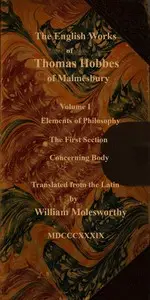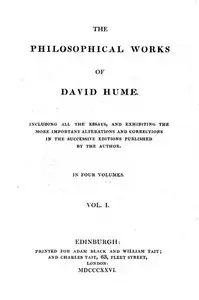"The Works of George Berkeley. Vol. 1 of 4: Philosophical Works, 1705-21" by George Berkeley is a compilation of writings that introduces his early philosophical explorations in the 1700s. Accompanied by notes and a life story from Alexander Campbell Fraser, the volume explains Berkeley’s beginnings and the core arguments that form his complex ideas on subjects like seeing, understanding, and the role of a higher power. The story begins with Berkeley’s upbringing and schooling, showing how his thinking changed as he questioned common beliefs. It shows his intellectual growth at Trinity College, Dublin, where he grappled with many philosophies. Berkeley's main objective is to question views based on materialism, instead promoting a world that is interpreted through experience and divine planning, which leads to his more complex ideas about idealism and reality.

The Works of George Berkeley. Vol. 1 of 4: Philosophical Works, 1705-21
By George Berkeley
Explore early 18th-century writings that challenge the understanding of reality through perception and faith.
Genres
Released
2012-05-20
Formats
mobi
epub
epub3 (images)
epub (images)
mobi (images)
txt
Free Download
Summary
About the AuthorGeorge Berkeley – known as Bishop Berkeley – was an Anglo-Irish philosopher whose primary achievement was the advancement of a theory he called "immaterialism". This theory denies the existence of material substance and instead contends that familiar objects like tables and chairs are ideas perceived by the mind and, as a result, cannot exist without being perceived. Berkeley is also known for his critique of abstraction, an important premise in his argument for immaterialism.
George Berkeley – known as Bishop Berkeley – was an Anglo-Irish philosopher whose primary achievement was the advancement of a theory he called "immaterialism". This theory denies the existence of material substance and instead contends that familiar objects like tables and chairs are ideas perceived by the mind and, as a result, cannot exist without being perceived. Berkeley is also known for his critique of abstraction, an important premise in his argument for immaterialism.
Total Reviews
10.0k
Total reviews from Goodreads may change


















